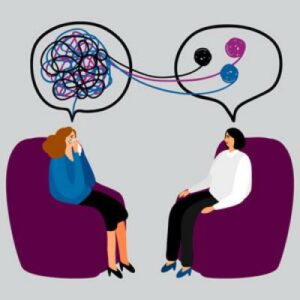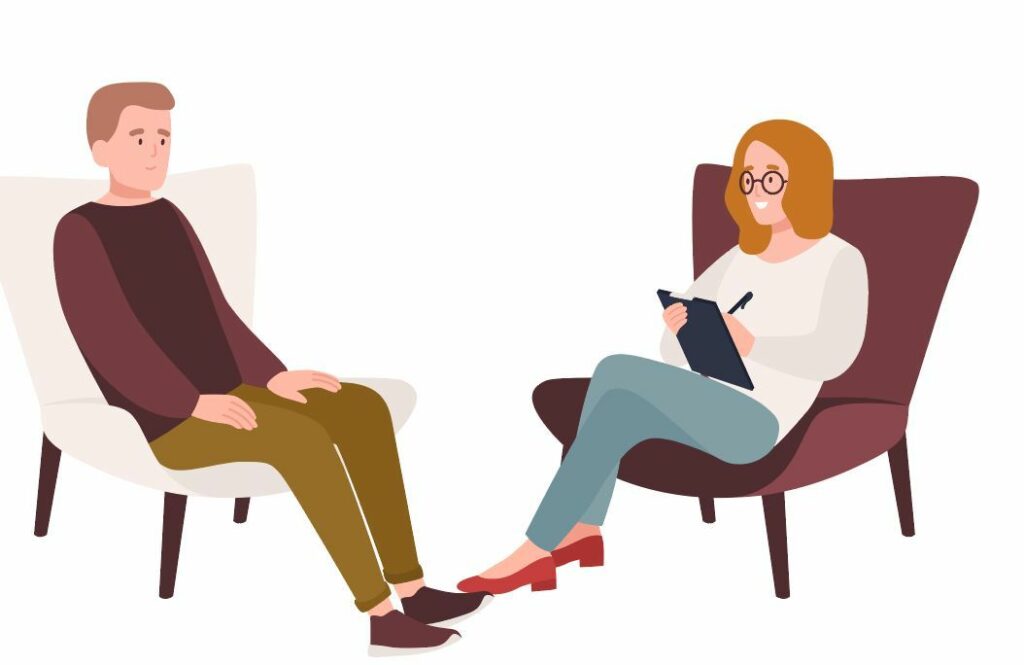What do you understand by modality therapy in psychiatry? How about types of clinical and therapeutic treatment modalities in psychiatry? What are the criteria used while making the choice of modality therapy for treatment plans in psychiatry? And how can psychotherapists be of help to patients with their own needs on this topic of discussion? We will explore these questions, along with conclusion-making ideas, so stick around!
Contents
What Is Modality Therapy In Psychiatry?

Modality therapy is a great tool for treating psychiatric disorders because it gives the patient a sense of empowerment and control over their symptoms.
It can turn an individual’s life around by giving them coping mechanisms to overcome challenges in everyday situations. This form of psychotherapy has been widely researched as well, so therapists have valid evidence to back up their claims.
If you are looking for an effective treatment modality to use in your psychiatric practice, then look no further than modality therapy. It is successful in many cases and can provide patients with the tools they need to manage their mental health. While it is not a cure-all, yet it is a powerful tool.
What are the Types of Clinical and Therapeutic Treatment Modalities in Psychiatry?
There are many different clinical treatment modality therapies for psychiatry. The most common types include:
- Psychotherapy,
- Cognitive Therapy,
- Family Therapy,
- Group Therapy,
- Behavior Modification Therapy (BMT),
- Cognitive Behavioral Therapy (CBT) or
- Dialectical Behavioral Therapy/DBT
Psychotherapy
It is the most common type of modality therapy treatment in psychiatry. Psychiatrists who use psychotherapy may have different preferences for specific clinical and therapeutic treatment modalities. But there are some that they commonly use to treat psychiatric patients:
- Individual Therapy,
- Couple or Family Therapy,
- Group Therapy and
- Family Systems Therapy
Individual Therapy
This form of therapy is where the psychiatrist meets with the patient one-on-one to discuss their issues and concerns. The therapist will try to get a better understanding of the patient’s symptoms and how they are impacting their life. This information can then be used to create a treatment plan that best suits the individual’s needs.
Couple or Family Therapy
This form of modality therapy is where the therapist meets with both members of a couple, family unit, etc. to discuss their symptoms and how they are impacting their lives as a whole. The psychiatrist will try to get a better understanding of what each person believes caused these symptoms for them to come up with a treatment plan that is best suited for the family unit.
Group Therapy
This form of psychotherapy is where the psychiatrist meets with a group of people who have similar psychiatric symptoms and diagnoses. The therapist will try to help them better understand their diagnosis and what they can do to manage it to live better lives. They also may learn new skills that they can build upon so later on if these skills are helpful, they can use them in individual therapy.
Family Systems Therapy/FST
This type of treatment modality helps families understand how their relationships can trigger emotional distress for individual family members. FST focuses on the family as a system, and how each member’s behavior affects the whole family.
Cognitive Therapy
This type of therapy helps patients understand how their thoughts and feelings influence their behaviors. Cognitive therapy aims to help people change the way they think (cognitions) so that they can change the way they feel and behave.
Dialectical Behavioral Therapy/DBT
It is a treatment modality for individuals with borderline personality disorder, which uses dialectics to help patients understand the relationship between acceptance and change, as well as emotional regulation strategies.
Behavior Modification Therapy (BMT)
This type of therapy focuses on changing the patient’s behavior by reinforcing positive behaviors and reducing or eliminating negative behaviors. BMT is often used to treat conditions such as obsessive-compulsive disorder, Attention Deficit Hyperactivity Disorder (ADHD), Tourette Syndrome, and eating disorders.
Cognitive Behavioral Therapy/CBT
This type of therapy helps people identify and change unhelpful thinking and behavior patterns. It is a short-term, goal-directed therapy that treats problems such as depression or anxiety by changing the patient’s cognition (thoughts) and behaviors.
Choice of Modality Therapy for Treatment Plans in Psychiatry
The criteria used while making the choice of modality therapy for treatment plans in psychiatry can vary depending on the psychiatrist’s preference or area of expertise. However, some of the most common considerations include:
- The severity of the psychiatric condition,
- Patient’s age,
- Presence or absence of co-existing medical and/or psychiatric conditions,
- Availability of resources (such as therapists), and
- Patient’s preference
The first is the severity of the disorder. If the patient has a more severe mental illness, then a different treatment modality may be necessary.
Another factor that is taken into account is the patient’s preference. If they have a certain type of therapy that they prefer, then that may be used.
Finally, therapists will consider the patient’s previous experiences with certain types of therapy. If they have had a bad experience in the past, then they might not want to try it again.
What Are Psychotherapists’ Views on Modality Therapy?

Psychotherapists have different opinions on modality therapy. Some believe that it is an effective treatment for psychiatric disorders. While others think that it is not as beneficial as other forms of psychotherapy. However, most therapists agree that modality therapy can be a useful tool when incorporated into a treatment plan.
In addition, subjective experiences with modality therapy vary between patients because each individual is unique. Therefore, certain types of therapy might work for one person and not another. Consider that combining several forms of therapy can also be helpful when it comes to treatment plans (like CBT and psychodynamic). Similarly, using different therapies in conjunction could help a patient overcome their disorder faster.
Once you’ve decided modality therapy is the best treatment option for your patient, there are several different modalities to choose from (dialectical behavior therapy [DBT], cognitive-behavioral therapy [CBT]). Not all of them can be used in every case so the therapist must make an informed choice.
Conclusion
Modality therapy is a clinical and therapeutic treatment modality that has been used for many years in psychiatry.
It is the process of using certain clinical and therapeutic treatment modalities in psychiatry to achieve a specific goal for individual patient care.
When working with psychiatric patients, all psychiatrists know or should know about modality therapy.
There are different types of modalities, each with its own set of criteria that the therapist must take into account when choosing one for their patient.
Psychotherapists have varying opinions on the effectiveness of this type of therapy. However, it can be a useful tool when used in conjunction with other forms of therapy.
For more information, please contact MantraCare. Online therapists are increasingly important in today’s world because they provide a convenient and accessible way for people to receive mental health support and treatment. Visit MantraCare If you are searching for “therapist near me”. Book a trial Online therapy session


